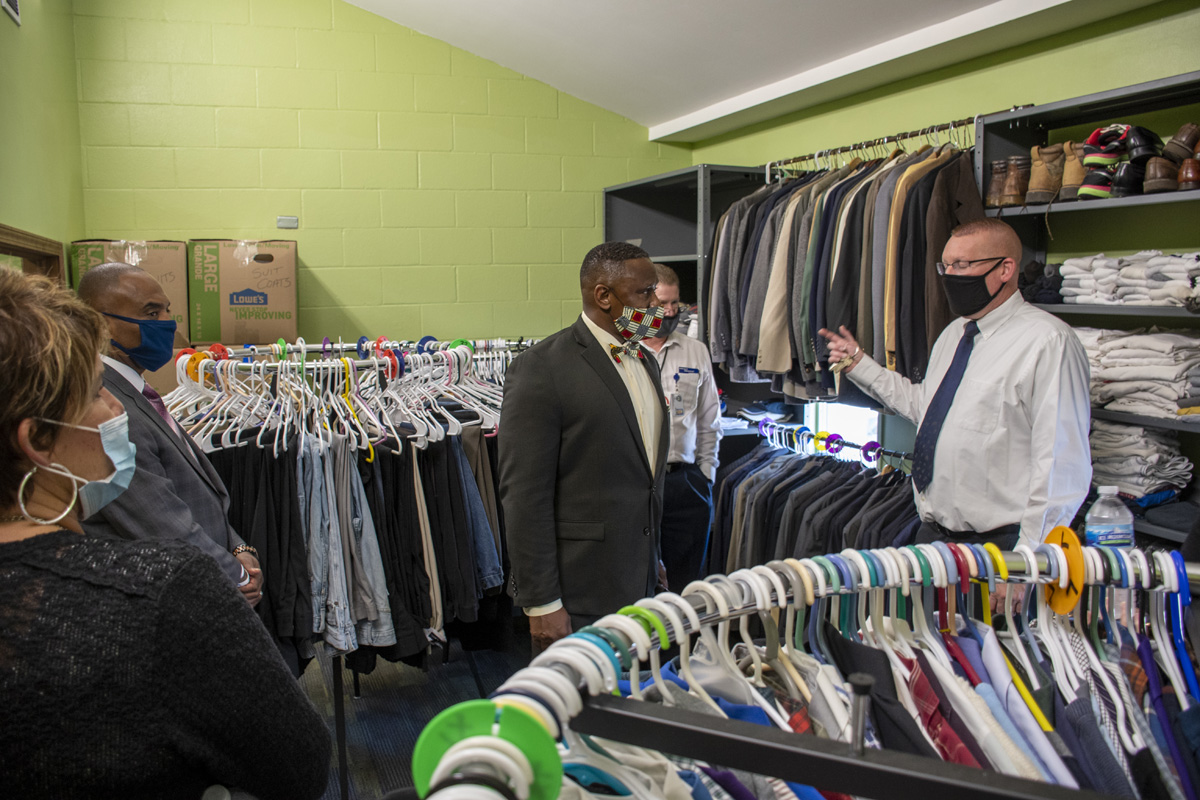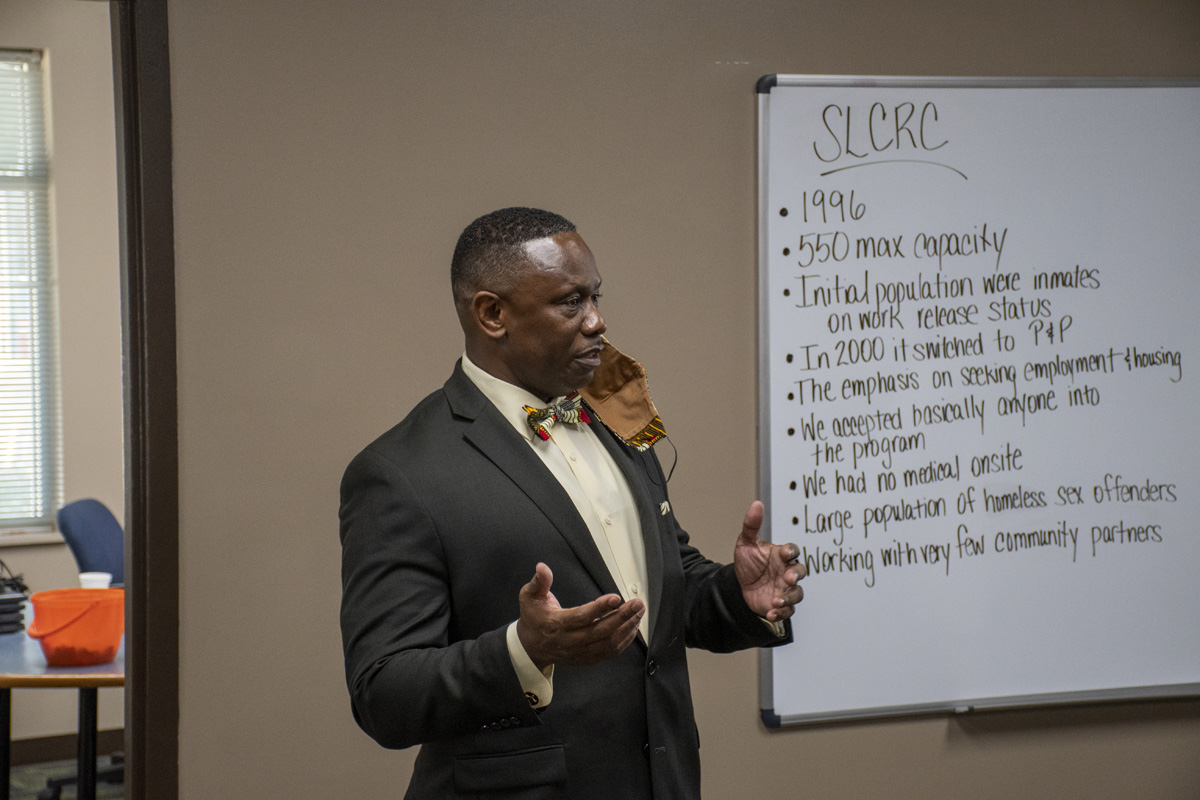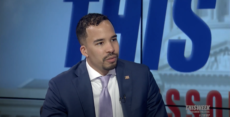Missouri is “getting it right” with its efforts to mitigate recidivism among formerly incarcerated individuals, said Tony Lowden, appointed to lead President Trump’s national prison reentry program, during a recent trip to the state.
Lowden, the executive director of the Federal Interagency Council on Crime Prevention and Improving Reentry, visited multiple facilities on the eastern side of Missouri to learn more about reentry programs. In particular, he praised the Missouri Department of Corrections‘ (DOC) collaboration with other state agencies to implement trainings, programs, and other aid to people — oftentimes while still incarcerated.
“Missouri is getting it right. If you look at the leadership in Missouri that has made criminal justice reform and reentry a priority — from the governor and two U.S. senators at the federal level down to the departments — they’re doing it right,” Lowden told The Missouri Times in an interview.
“I’m going back to try to replicate some of what Missouri is doing in the whole nation,” he said. “It’s absolutely phenomenal for a state prison system to be doing this amount of work around prison reform.”
A look at Missouri’s unique collaboration
More than 19,000 Missourians are released from state prisons each year, and approximately 96 percent of those incarcerated return home to their communities, according to DOC figures.
The vast collaboration between DOC and other state departments is relatively new, Ken Chapman, the DOC’s reentry manager, told The Missouri Times. It really kicked off after Gov. Mike Parson took office and — with a focus on infrastructure and workforce development — put together a committee that focused on reentry, Chapman said.
“I think we’re onto something in Missouri. I think it’s taken us a little bit to get there,” Chapman said. “It’s exciting to know from a national perspective we’re not just on the right track, but we’re doing something to make Missouri a safer place for communities, businesses, all of us.”

Specifically, Chapman touted partnerships with the Department of Social Services (DSS) to provide information and guidance on child support obligations as well as SNAP and Temporary Assistance (TA) aid. The department also partners with the Missouri State Highway Patrol to provide the written test for driver’s licenses prior to one’s release from prison.
Chapman noted the department also works with outside agencies — which provide employment readiness, health care, and housing help, among other things — through community supervision centers. In particular, Three Rivers College offers a truck driving simulator training in Poplar Bluff for those hoping to obtain a CDL license, Chapman said.
“In about three years, we’re going to see a dramatic difference in recidivism because of these programs,” he said.
So what’s next?
In 2017, the average rate of recidivism in Missouri sat at 60 percent. But it’s still too soon to calculate what the rate is since these statewide partnerships have been implemented, Chapman said.
Lowden said he delivered a message to those working on reentry efforts in Missouri: “Push forward and ask the question of what’s next. Because of the pandemic, find ways to bring in technology and other similar programs inside the facilities; that’s going to be the new norm.”
“What I’m asking Missouri to do: See what else you can do with collaboration. Who else needs to be at the table? How can we do more so that we can change the directions of our communities?”
Lowden was tapped to lead the council in February 2020. He is the pastor of Maranatha Baptist Church in Georgia (where President Jimmy Carter attends) and has worked as a chaplain for the Secret Service. Lowden is also the former director of a faith and justice initiative through the Georgia governor’s office.
On his trip, Lowden:
- toured the Transition Center of St. Louis where men complete a four-phase residential transition model on programming and education
- met with an ASPIRE MO women’s prison entrepreneurship program graduate and program partners
- met with the community-based Missouri Bootheel Regional Consortium which provides education, events, training, and more for families
- toured an Investing in Community Treatment Success program at the Poplar Bluff Community Supervision Center.
Additionally, Lowden talked with Parson and other leaders — both in the state and on the community level — to discuss more holistic approaches for reentry programs.
“Pastor Lowden was very complimentary of the collaborative work our Missouri Department of Corrections is doing with other state agencies to provide timely service,” Gov. Parson said in a statement. “We know providing community-based services enhances public safety and reduces subsequent incarcerations. During his visit to Missouri, Pastor Lowden was especially interested in State Technical College’s MOStart mobile training unit and said he hopes to replicate that model in other states, as well. The ability to provide cutting edge vocational training and gender-specific entrepreneur training, like AspireMO, is key for those pursuing a meaningful career and not just a job.”
“We’re living in a time right now where rural and inner cities, because of drugs and crimes, are looking almost alike,” Lowden said. “If we’re going to change that and make our communities safe, we have to take a holistic approach and work with leaders with Gov. Parson and President Trump.”
The Federal Interagency Council on Crime Prevention and Improving Reentry was established through an executive order from Trump in 2018.
This story has been updated to include a statement from Gov. Mike Parson.

Kaitlyn Schallhorn was the editor in chief of The Missouri Times from 2020-2022. She joined the newspaper in early 2019 after working as a reporter for Fox News in New York City.
Throughout her career, Kaitlyn has covered political campaigns across the U.S., including the 2016 presidential election, and humanitarian aid efforts in Africa and the Middle East.
She is a native of Missouri who studied journalism at Winthrop University in South Carolina. She is also an alumna of the National Journalism Center in Washington, D.C.
Contact Kaitlyn at kaitlyn@themissouritimes.com.



































